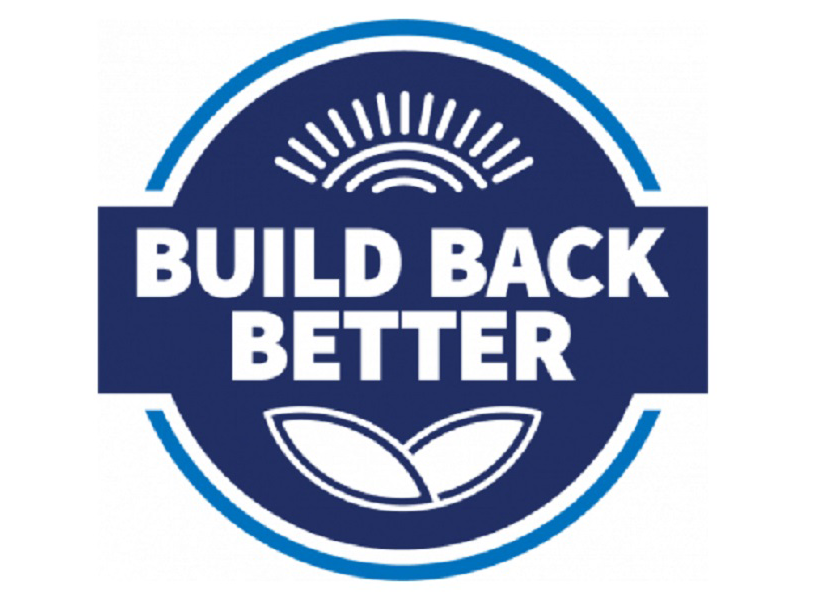USDA to invest $1 billion to purchase healthy food for food insecure Americans and build food bank capacity

The U.S. Department of Agriculture today announced an investment of up to $1 billion, including $500 million in American Rescue Plan funding, in The Emergency Food Assistance Program (TEFAP) to support and expand the emergency food network so states, food banks and local organizations can reliably serve their communities.
Building on lessons learned during the COVID-19 pandemic, USDA will enter into cooperative agreements with state, Tribal and local entities to more efficiently purchase food from local producers and invest in infrastructure that enables partner organizations to more effectively reach underserved communities. USDA believes the food system of the future should be fair, competitive, distributed, and resilient; it must support health and ensure producers receive a fair share of the food dollar while advancing equity and contributing to national climate goals. This investment represents the first part of USDA’s new Build Back Better initiative to help achieve that vision and start building a better food system today.
“Hunger is on the decline thanks to aggressive action by the Biden-Harris Administration, but we must do more to improve partnerships and infrastructure that power emergency food distribution to ensure the food provided is nutritious and supports a better food system,” said Agriculture Secretary Tom Vilsack. “Now is the time to apply lessons learned from food assistance activities early in the pandemic to improve how USDA purchases food and supports on-the-ground organizations with TEFAP. We will put special emphasis on reaching rural, remote and underserved communities, local and regional food systems, and socially disadvantaged farmers.”
In the coming months, USDA will make a series of additional investments under the Build Back Better initiative focused on building a better food system.
Build Back Better efforts will improve access to nutritious food, address racial injustice and inequity as well as a changing climate, provide ongoing support for producers and workers, and create a more resilient food system.
Today’s announcement of up to $1 billion will help resolve lingering challenges directly associated with the COVID-19 pandemic and start addressing long-term challenges to our nation’s food system exposed by the pandemic.
This effort is funded through the American Rescue Plan Act ($500 million) and the Consolidated Appropriations Act, 2021 ($500 million) and includes:
$500 Million to Support Emergency Food Assistance
USDA’s Agricultural Marketing Service (AMS) will purchase $500 million in nutritious, domestically produced food for state food bank networks through TEFAP. USDA’s Food and Nutrition Service (FNS) and AMS will work collaboratively with the state to distribute the food to TEFAP providers. USDA will purchase food from registered vendors for nationwide distribution. Small business, women-owned, minority-owned, and veteran-owned set-asides during the solicitation process will provide an enhanced opportunity for USDA-registered small businesses to submit competitive bids. This funding will continue to support demand from states for the new TEFAP Fresh Produce offering.
Up to $400 Million to Support Local, Regional, and Socially Disadvantaged Farmers
As part of this effort, AMS will establish cooperative agreements with state and Tribal governments or other local entities to purchase food for the food bank network from local and regional producers (within the state or within 400 miles) and from socially disadvantaged producers. AMS will use innovative approaches to ensure these agreements facilitate relationships between farmers, ranchers and producers and local and regional food systems.
Up to $100 Million In Infrastructure Grants to Build Capacity for Food Banks and Expand Reach into Underserved Areas
FNS will administer a new grant program aimed at helping food assistance organizations meet TEFAP requirements, strengthen infrastructure, and expand their reach into rural, remote, and low-income communities. This grant program incorporates lessons learned from the Farmers to Families Food Box program. It can help states, local organizations and former food box groups participate in the state’s emergency food network and help pantries build capacity for storage and refrigeration. These grants will help support organizations serving underserved communities and communities of color.
USDA will continue to make announcements through the Build Back Better initiative throughout 2021.







